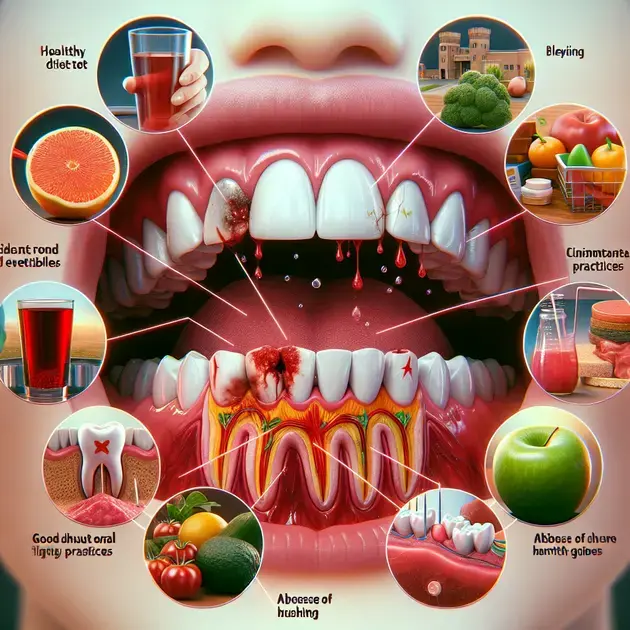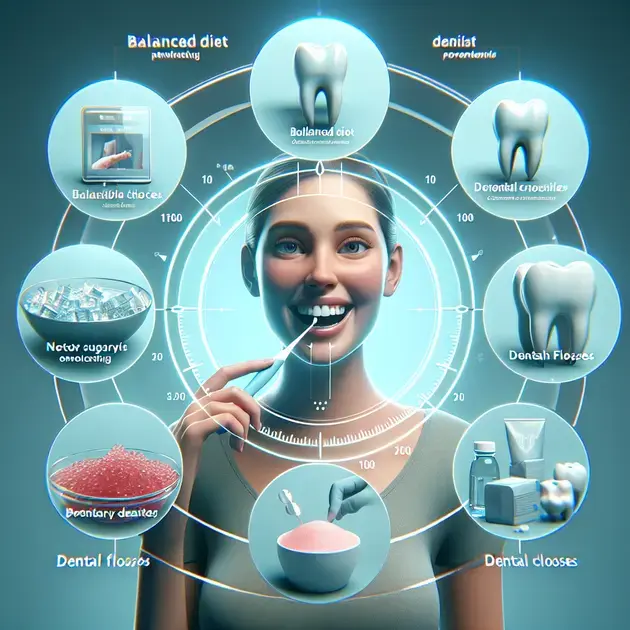Periodontitis, a severe gum infection that damages the soft tissue and destroys the bone that supports your teeth, is a common oral health issue affecting millions worldwide. In this comprehensive guide, we will explore the most effective medications available for treating periodontitis and maintaining oral health.
Recent studies have shown promising results in the use of antibiotics in combination with deep cleaning procedures for the treatment of periodontitis. Understanding the benefits and potential side effects of these medications is crucial for achieving successful outcomes in managing this chronic condition.

Understanding Antibiotic Therapy for Periodontitis Treatment
Antibiotic therapy is a crucial component in the treatment of periodontitis, a severe gum infection that can lead to tooth loss if left untreated. Understanding how antibiotic therapy works is essential for patients undergoing periodontal treatment. In order to receive antibiotic therapy for periodontitis, patients must first consult with a dental professional, such as a periodontist or general dentist.
During the consultation, the dental professional will conduct a thorough examination of the patient’s oral health and determine the appropriate course of antibiotic treatment. The type of antibiotics prescribed will depend on the severity of the infection and the patient’s overall health. Common antibiotics used to treat periodontitis include doxycycline, metronidazole, and amoxicillin.
To obtain antibiotics for periodontitis treatment, patients can visit a local pharmacy with a prescription from their dental provider. It is essential to follow the prescribed dosage and duration of antibiotic therapy to ensure the effectiveness of the treatment. Additionally, patients should be aware of any potential side effects associated with the antibiotics and report any adverse reactions to their dental professional.
Monitoring the progress of antibiotic therapy for periodontitis is essential to evaluate its effectiveness in combating the infection. Patients should schedule follow-up appointments with their dental provider to assess the response to treatment and make any necessary adjustments. By following the prescribed antibiotic therapy regimen, patients can improve their oral health and prevent the progression of periodontitis.
The Role of Deep Cleaning Procedures in Managing Periodontitis
Deep cleaning procedures, also known as scaling and root planing, play a vital role in managing periodontitis by removing plaque and tartar buildup from the teeth and gums. This non-surgical treatment is recommended for patients with moderate to severe gum disease to prevent further progression and restore oral health.
Before undergoing deep cleaning procedures, patients will first receive a comprehensive dental examination to assess the extent of periodontal disease. The dental hygienist or periodontist will then use specialized instruments to clean below the gum line and smooth the root surfaces of the teeth to remove bacteria and promote healing.
Patients can schedule deep cleaning procedures at their local dental office or periodontal clinic, where trained professionals perform the treatment. It is crucial to follow post-operative care instructions, such as proper oral hygiene practices and attending follow-up appointments, to ensure the success of deep cleaning procedures in managing periodontitis.
Deep cleaning procedures may be performed in multiple sessions, depending on the severity of the gum disease. Patients should discuss the treatment plan and expected outcomes with their dental provider to establish realistic goals for managing periodontitis with deep cleaning procedures.
Benefits and Side Effects of Medications for Periodontitis
Medications are commonly prescribed in the treatment of periodontitis to control bacterial infection, reduce inflammation, and promote healing of the gums. Understanding the benefits and side effects of medications for periodontitis is essential for patients to make informed decisions about their oral health care.
One of the key benefits of medications for periodontitis is their ability to target the underlying bacterial infection that causes gum disease. Antibiotics and antimicrobial agents are often used to eliminate harmful bacteria and prevent their regrowth, leading to improved periodontal health.
However, medications for periodontitis may also have side effects that patients should be aware of, such as gastrointestinal disturbances, allergic reactions, and antibiotic resistance. It is essential for patients to communicate any adverse effects to their dental provider to determine the best course of action.
Patients can access information about the benefits and side effects of medications for periodontitis from reputable sources, such as the American Academy of Periodontology website or the National Institute of Dental and Craniofacial Research. By understanding the potential risks and benefits of medication therapy, patients can actively participate in their periodontal treatment and achieve optimal oral health outcomes.

To develop each subtitle and the subtitles in h2 Choosing the Best Approach for Periodontitis Treatment
1. **Choosing the Best Approach for Periodontitis Treatment**
Periodontitis is a severe gum infection that damages the soft tissue and destroys the bone supporting your teeth. To effectively treat periodontitis, it’s crucial to choose the best approach for your specific condition. The first step in treatment usually involves non-surgical procedures such as scaling and root planing to remove plaque and tartar buildup. In more advanced cases, surgical interventions like flap surgery or bone grafting may be necessary to restore gum health and stabilize the bone structure.
Another essential aspect of periodontitis treatment is addressing any underlying factors contributing to the disease. This includes risk factors like smoking, diabetes, and poor oral hygiene. By targeting these factors, you can prevent the progression of periodontitis and improve treatment outcomes. Additionally, the use of antimicrobial mouth rinses or systemic antibiotics may be recommended to control bacterial infections and promote healing.
Furthermore, incorporating lifestyle changes can significantly impact the effectiveness of periodontitis treatment. Adopting a balanced diet rich in nutrients and vitamins can boost your immune system and support gum health. Avoiding habits like smoking and excessive alcohol consumption can also enhance the healing process and prevent further complications. Regular dental visits for professional cleanings and check-ups are essential to monitor your progress and adjust treatment as needed.
In conclusion, choosing the best approach for periodontitis treatment involves a comprehensive strategy that addresses the root cause of the disease and incorporates a combination of non-surgical and surgical interventions, lifestyle modifications, and professional monitoring. By taking a proactive approach to your oral health and working closely with your dental care team, you can effectively manage periodontitis and preserve your smile for years to come.
2. **The Impact of Lifestyle Choices on Periodontal Health**
Your lifestyle choices have a significant impact on your periodontal health and overall well-being. Factors such as diet, smoking, stress levels, and oral hygiene practices can either support or undermine the health of your gums. A diet high in sugary foods and processed carbohydrates can fuel bacterial growth in the mouth, leading to plaque buildup and gum inflammation.
Smoking is another major risk factor for periodontal disease, as it weakens the immune system and impairs blood flow to the gums, making them more susceptible to infections. Additionally, stress can contribute to oral health issues by triggering inflammatory responses in the body and compromising the body’s ability to fight off infections.
On the other hand, adopting healthy habits like regular brushing, flossing, and using antimicrobial mouth rinses can help prevent gum disease and promote gum health. Eating a balanced diet with plenty of fruits, vegetables, and lean proteins can provide essential nutrients that support gum tissue regeneration and repair.
Furthermore, managing stress through practices like meditation, exercise, or therapy can reduce inflammatory markers in the body and support overall oral health. Avoiding tobacco products and limiting alcohol consumption can also lower your risk of developing periodontal disease and other oral health issues.
In summary, the impact of lifestyle choices on periodontal health underscores the importance of making informed decisions that prioritize your oral health. By adopting healthy habits, managing stress effectively, and avoiding potential risk factors, you can protect your gums and teeth from disease and maintain a healthy smile for years to come.
3. **The Importance of Professional Monitoring in Managing Periodontitis**
Professional monitoring plays a crucial role in managing periodontitis and ensuring the effectiveness of treatment. Regular check-ups with your dentist or periodontist allow for ongoing assessment of your gum health, monitoring of disease progression, and adjustments to your treatment plan as needed. These visits may include comprehensive exams, measurements of gum pockets, and evaluation of bone loss through X-rays.
Professional cleanings are also essential in managing periodontitis, as they involve the removal of plaque and tartar buildup that can lead to gum inflammation and disease progression. Deep cleanings, also known as scaling and root planing, target bacteria below the gum line and help prevent further damage to the gums and supporting structures.
Moreover, professional monitoring enables early detection of any complications or signs of disease recurrence, allowing for prompt intervention and preventive measures. Your dental care team can provide personalized recommendations for at-home oral care, dietary adjustments, and lifestyle modifications to support your gum health and overall well-being.
Collaborating with your dental professionals in managing periodontitis ensures that you receive comprehensive care tailored to your specific needs. By staying proactive about your oral health and attending regular appointments, you can effectively control your periodontal disease, prevent complications, and preserve your smile for the long term.
Conclusion
In conclusion, the optimal treatment approach for periodontitis involves a multifaceted strategy that tackles the root cause of the disease through a combination of non-surgical and surgical procedures, lifestyle adjustments, and consistent professional oversight. By tailoring the treatment to address specific factors contributing to periodontitis, such as smoking, diabetes, and poor oral hygiene, individuals can significantly enhance treatment outcomes and halt the progression of the disease. The incorporation of antimicrobial mouth rinses and systemic antibiotics further aids in controlling bacterial infections and promoting gum healing.
The impact of lifestyle choices on periodontal health cannot be overstated. Unhealthy habits like smoking and consuming sugary foods exacerbate gum disease, while positive practices such as regular brushing, flossing, and maintaining a balanced diet contribute to gum health and disease prevention. Managing stress levels and avoiding tobacco products are crucial steps in maintaining overall oral health and reducing the risk of periodontal issues.
Professional monitoring is essential for effective periodontitis management, allowing for the continuous evaluation of gum health, disease progression, and necessary treatment adjustments. Regular dental check-ups, cleanings, and personalized recommendations play a pivotal role in preventing complications, detecting early warning signs, and providing tailored care to support gum health and overall well-being. Collaborating with dental professionals and prioritizing consistent oral care routines empower individuals to proactively manage periodontitis, prevent complications, and preserve their smiles for the long term.



